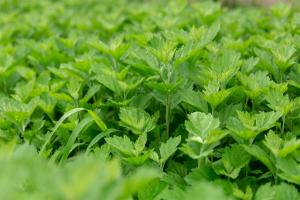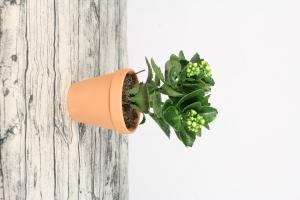Introduction
It is common knowledge that plants need water to grow and survive. But the question remains, is rainwater better for plants than tap water? The answer to this question may surprise you, as there are many factors to consider when it comes to the source of water for your plants. In this article, we will explore the benefits of rainwater for plants and compare them to tap water.
Benefits of Rainwater for Plants
There are several benefits to using rainwater for plants. Firstly, rainwater is free of any chemicals or minerals that are commonly found in tap water. This means that rainwater is less likely to cause any harm to your plants or disrupt their growth cycle. Secondly, rainwater contains a higher level of oxygen, which is essential for plant growth. The oxygen in rainwater is absorbed easier by plants than the oxygen in tap water, which can lead to a healthier and more vibrant plant.
Comparison to Tap Water
Tap water is treated with chemicals such as chlorine, which can harm plants if used in excess. The chemical makeup of tap water can also vary from place to place, making it difficult to ensure that your plants are receiving the necessary nutrients. Another factor to consider is the pH levels in tap water, which can be too high or low for certain plants. However, tap water is more readily available and convenient to use than rainwater.
When to Use Rainwater
Rainwater is best used in the early stages of a plant's growth cycle. This is when a plant is most vulnerable and requires more oxygen and nutrients to grow. Rainwater is also beneficial for plants that are sensitive to the chemicals in tap water, such as ferns or orchids. However, if you live in an area where rainwater is scarce, or if your plants require a specific pH level, tap water may be the better option.
Collecting Rainwater
If you decide to use rainwater for your plants, there are several ways to collect it. One of the easiest methods is to use a rain barrel, which can be placed outside to collect rainwater from your roof. It's important to keep the rain barrel clean and free of debris to prevent any harmful bacteria from growing. Another way to collect rainwater is to use a rain garden or catchment basin, which is designed to collect and filter rainwater for use in gardening.
Conclusion
So, is rainwater better for plants than tap water? The answer depends on your specific situation and the needs of your plants. While rainwater is free of chemicals and contains a higher level of oxygen, it may not be suitable for all plants or readily available in all areas. Tap water, on the other hand, is convenient and readily available, but may contain harmful chemicals or minerals. Ultimately, the source of water you choose for your plants will depend on the type of plants you have and the resources available to you.

 how many times do yo...
how many times do yo... how many planted tre...
how many planted tre... how many pine trees ...
how many pine trees ... how many pecan trees...
how many pecan trees... how many plants comp...
how many plants comp... how many plants can ...
how many plants can ... how many plants and ...
how many plants and ... how many pepper plan...
how many pepper plan...
































